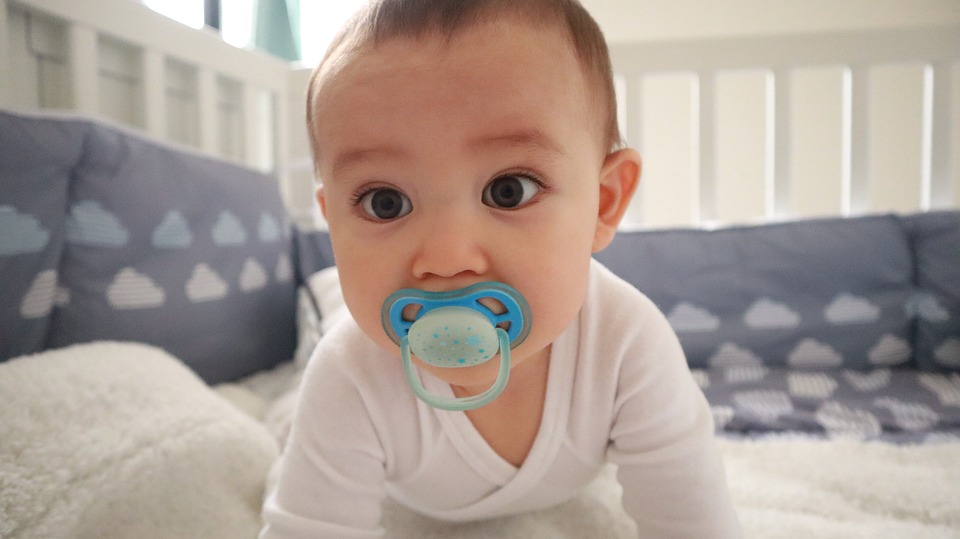Pacifiers go by many names – pacies, dummies, binkies – but whatever you may call them, they can be lifesavers for parents with fussy kids. But while a pacifier can soothe a cranky baby, it can also cause dental problems if used excessively or for a long period of time. Please continue reading to find out what are pacifier teeth and how you can prevent them and fix them.
What are pacifier teeth?
Pacifier teeth is an umbrella term that refers to a range of dental problems that can be the result of pacifier use, such as:
Misaligned bite
The constant presence of a foreign object, such as a pacifier, in the mouth can cause the teeth to move out of their natural position, resulting in malocclusion (crossbite or open bite). Studies have shown that children who continue pacifier use beyond 4 years of age have a higher prevalence of pacifier teeth, specifically malocclusion (where the top and bottom teeth do not come together in the proper position).
Gum loss and cavities
Parents who dip pacifiers in sweet substances to soothe fussy babies increase the risk of plaque buildup and dental cavities in the child’s teeth. In extreme cases, pacifier teeth can be accompanied by gingival recession or gum loss.
Will pacifier teeth go back to normal?
Some of the dental problems caused by pacifier use are reversible and go away once the child stops sucking on pacifiers and the adult teeth come in. However, other problems may be permanent or require definitive treatment.
Can you get rid of pacifier teeth?
You can get rid of pacifier teeth. The treatment depends on the specific issues. As mentioned above, some dental problems of pacifier teeth correct themselves when the child stops using a pacifier and the adult teeth come in. In general, issues that develop before 2 years of age are usually reversible. On the other hand, pacifier teeth after 2 years of age can be more severe and may need correction with orthodontic appliances such as braces when the child is older.
What age should you take the pacifier away?
There’s no right answer to this because every child and every family is different. However, in general, we recommend reducing pacifier use between the ages of 6 and 12 months. This not only lowers the risk of pacifier teeth but also ear infections. Pacifier use beyond the age of 2 years puts your child at high risk of developing pacifier teeth (dental issues related to pacifier use). By age 3 years, you should be actively working on stopping pacifier use. We strongly advise against pacifier use by 4 years of age.
How to prevent pacifier teeth?
You don’t have to throw away your child’s pacifiers altogether. The following precautions can help to avoid the dental issues commonly called pacifier teeth.
- Do not allow your child to share pacifiers with other kids. This can increase the risk of infections.
- Avoid dipping pacifiers in something sweet as this increases the risk of tooth decay.
- Choose the right pacifier size for your child’s age. Pacifiers that are too small can be a choking hazard, and pacifiers that are too large may cause pacifier teeth.
- Consider buying orthodontic pacifiers that are flatter and keep the jaw properly aligned when a child is sucking on them.
In case you’re wondering if thumb sucking is worse than pacifier use, it’s equally problematic.
Remember, the American Dental Association recommends that a child should visit the dentist within 6 months of the first tooth coming in and in any case before 1 year of age.
Stay tuned to the Express Dentist blog for more information about dental care in kids. In the meantime, read about what the tooth fairy does with teeth (if your toddler has been bugging you with questions).
Also, find out how many baby teeth are lost and when kids start losing teeth.
And last but not least, read some easy tips on encouraging kids to brush their teeth regularly.
If you’re looking for a family dentist in your community, call Express Dentist today. We have a trusted network of experienced dental professionals and we’ll be happy to put you in touch with a dentist near you.
About the author

Dr. Greg Grillo
Dr. Greg Grillo DDS studied at the University of Washington where he received a bachelors degree with Honors and later attended dental school on the same campus. Following school Dr. Greg served in the United States Navy as a dental officer. During this time he received advanced training in specialty areas of dentistry while also treating families of members of the military.
As well as sharing valuable information on dentistry and oral health, Dr. Greg remains a practicing dentist to this day. He works with families in the Okanogan Valley where he lives with his wife and three children.





